THREAD: inflation uk
LifeLine™ Media threads use our sophisticated algorithms to construct a thread around any topic you want, providing you with a detailed timeline, analysis, and related articles.
News Timeline

UK NEWS FREEZE: Calm Breaks the Usual Chaos on May 4
— For once, there’s no breaking news from the United Kingdom today. On May 4, 2025, things are steady — no major events have shaken the country.
All top news sources and officials agree that nothing significant has changed since yesterday. The headlines remain quiet across Britain.
If you’re looking for updates or surprises, you’ll have to wait a bit longer. Right now, it’s business as usual with no fresh stories making waves.
Stay tuned for any shifts or unexpected developments — but today, calm rules over chaos in the UK.

UK ENERGY THEFT Surge: Families Desperate as Bills Spike and Dangers Grow
— Energy theft is exploding across the UK as families battle record-high bills in 2025. Reports from Crimestoppers show more people are tampering with meters or making illegal hookups. The latest government price cap hike and the cost-of-living crisis are pushing many to take risky steps just to keep the lights on.
Experts say this is not just about money — it’s a real danger. Messing with gas lines or meters can cause deadly fires and explosions, putting whole neighborhoods at risk. There have already been tragic deaths linked to these desperate acts.
The financial toll is massive too. Stolen energy now costs an estimated £1.5 billion each year, while total energy debt in Britain has soared to a record £3.9 billion — more than double what it was before the crisis.
Lawmakers say urgent action is needed, like better home insulation and lower rates for struggling families. Critics argue current government help isn’t enough, warning that without stronger action, both public safety and the UK’s entire energy system could be in trouble.

UK Economy SHOCK: 2025 Growth Forecast SLASHED to 1%
— The UK government is scrambling to address a major financial shortfall as the growth forecast for 2025 has been slashed to just 1%. This sharp reduction raises concerns about the country’s economic health, affected by both domestic and international challenges. The Chancellor of the Exchequer will provide more details in a press conference today.
This development highlights ongoing economic issues like inflation and external pressures that have forced a reassessment of growth projections. Experts worry about the impact on public services and potential tax hikes.
Increased scrutiny of government spending priorities and economic policies is expected following this announcement. The government’s response will be crucial in navigating these turbulent economic waters.
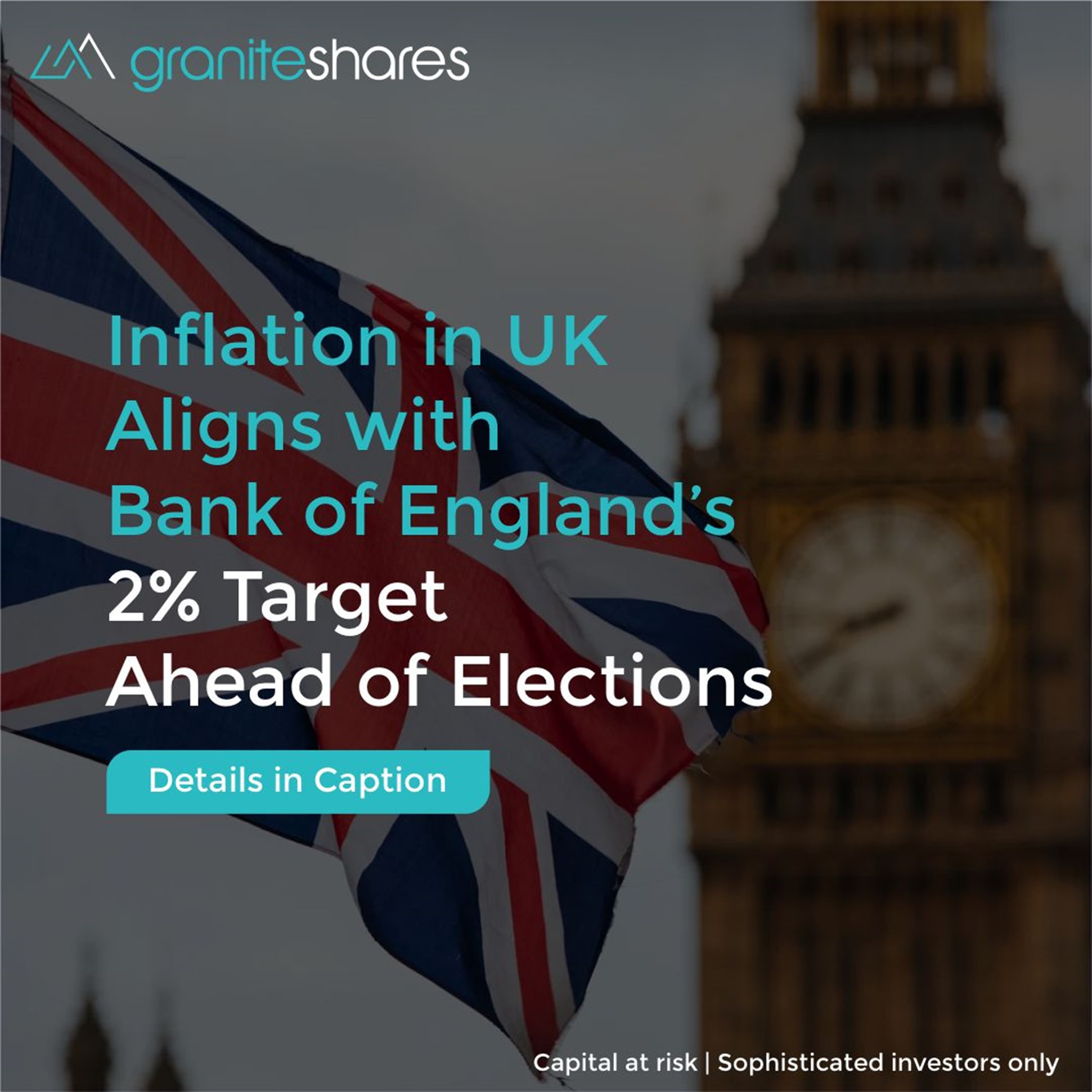
UK INFLATION SURGE: What It Means for Your Wallet
— The United Kingdom is facing a jump in inflation, hitting a 10-month high. This spike raises concerns for the Bank of England as it works to maintain economic stability. The increase could impact future monetary policies and interest rates.
BRITISH MUSICIANS SILENCE AI with BOLD Protest
British musicians are making a statement against artificial intelligence by releasing a silent album. They oppose AI using their work without permission. This protest highlights growing tensions between artists and tech companies over intellectual property rights.
UK HALTS RWANDA AID Amid CONGO Violence Concerns
The UK has stopped some financial aid to Rwanda due to violence in eastern Congo. This decision reflects worries about regional stability and human rights issues, showing the UK’s cautious approach to foreign aid during geopolitical tensions.
Iran has accused a detained British couple of spying, increasing diplomatic tension between the two nations. This claim could complicate already strained relations and affect future diplomatic talks as both countries handle this sensitive issue carefully.

INSOLVENCIES SURGE: Businesses Face Economic Pressures in England and Wales
— Insolvencies in England and Wales have jumped from December 2024 to January 2025. Law firm Fladgate LLP reports a significant rise in administrations. The economic climate is tough for businesses, especially in retail, which already struggles with slim profit margins. The upcoming Spring Budget might introduce tax hikes that could further pressure businesses and consumer spending.
ANGLO AMERICAN’s $500 Million NICKEL Sale Marks Strategic SHIFT
Anglo American has sold its nickel business for $500 million as part of a strategic shift to focus on copper and iron. This sale follows the disposal of its steelmaking coal business, bringing total asset sales to about $5.3 billion. CEO Duncan Wanblad highlighted that these moves are meant to streamline the company’s portfolio and boost value.
COLORADO BILL DEMANDS Climate Transparency from Businesses
Colorado will require businesses to disclose their greenhouse gas emissions starting in 2028, aligning with similar efforts by other states. This legislation responds to past criticisms about inconsistent sustainability reporting practices across industries. The goal is more transparency and accountability regarding environmental impacts from companies within the state.
The IRS plans major layoffs during tax season due to budget cuts initiated by the Trump administration, which may affect its
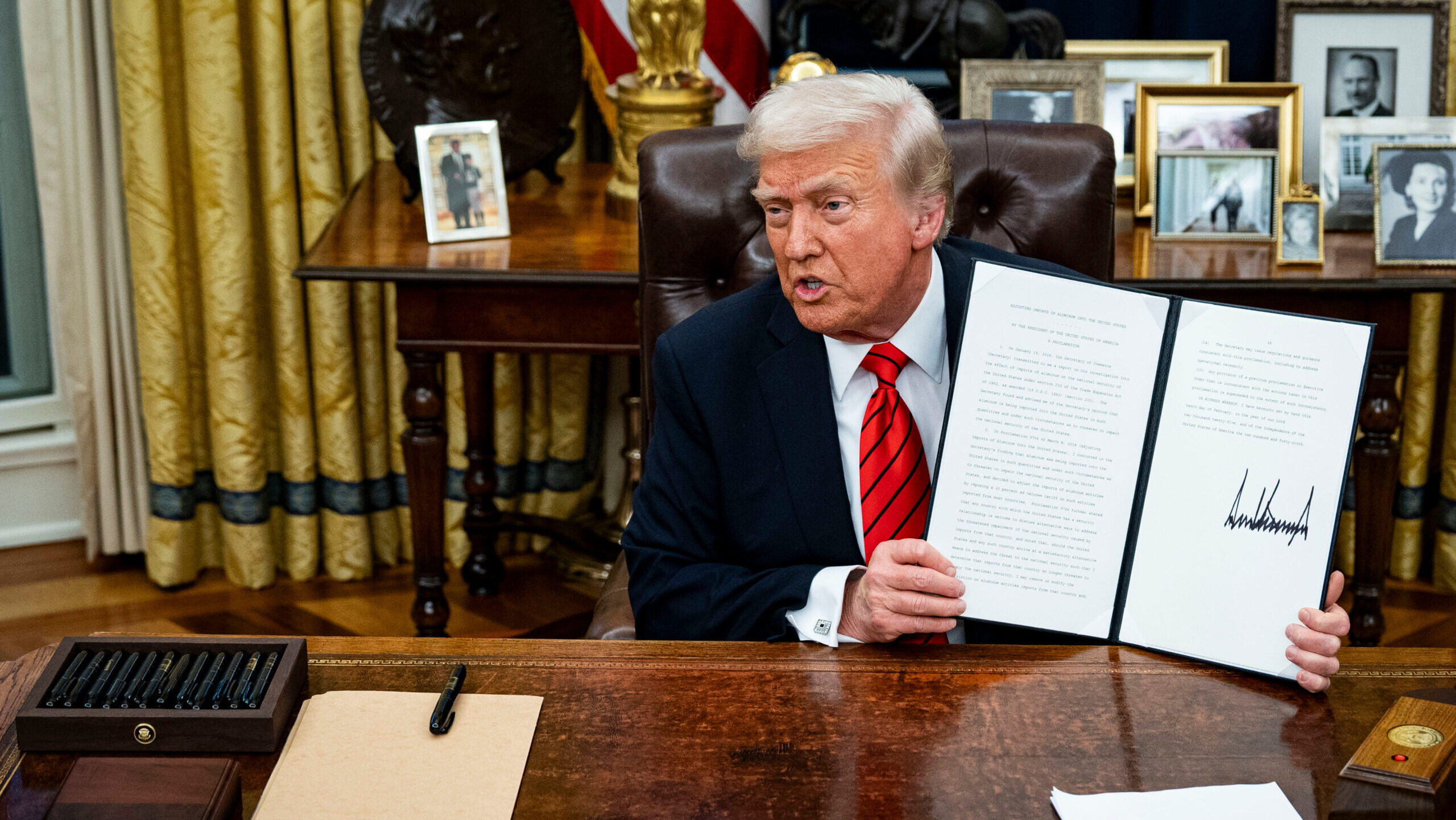
“TRUMP’S Steel Tariffs Ignite Fears Among UK Businesses”
— President Donald TRUMP plans a 25% tariff on steel imports, causing unease in the UK. The move, described as “without exceptions,” has led UK shadow business secretary Andrew Griffith to urge negotiations for an exemption. The Department for Business and Trade warns these tariffs could harm UK steelmakers by allowing cheaper imports to undercut them.
A survey shows 37% of UK entrepreneurs fear increased operational costs due to TRUMP’s proposed tariffs. With the US accounting for 22% of the UK’s total exports, the potential impact is significant. Entrepreneurs worry about staying competitive amid these new financial pressures.
In response, the UK government is taking steps to bolster its steel industry through a Plan for Steel Consultation initiative. This strategy includes up to £2.5 billion aimed at protecting jobs and fostering economic growth within the sector. These efforts highlight ongoing challenges in international trade relations between the US and UK under TRUMP’s tariff policies.

Bank of England’s RATE CUT Sends Shockwaves Through Markets
— The Bank of England has cut interest rates by 25 basis points, causing the Pound Sterling to drop sharply against the US Dollar. This move shows worries about economic growth and inflation. Experts expect more rate cuts in 2025, signaling a careful approach to monetary policy.
Market analysts warn this could affect savings rates and borrowing costs, urging people and businesses to rethink financial plans. The immediate effect saw GBP/USD fall by 0.93%, hitting a session low of 1.2359.
This has increased market volatility, raising concerns about future economic stability in the UK. As uncertainty grows, many wonder how these changes will impact their finances and investments moving forward.
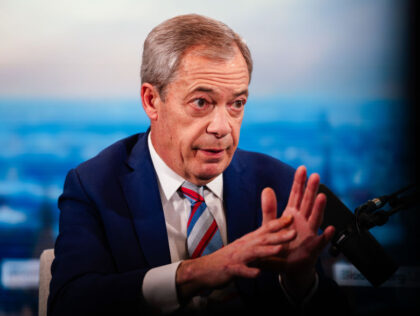
UK’S MIGRATION SURGE: Alarming Population Boom by 2032
— The UK’s population could hit 72.5 million by 2032, mostly due to migration, says the Office for National Statistics (ONS). The current count is about 69 million, but exact numbers are tricky because of undocumented residents. Between 2022 and 2023, births and deaths will balance at 6.8 million each, making migration the sole growth driver.
ONS predicts ten million immigrants will arrive long-term while five million will leave, leading to a net gain of five million through migration alone. Population growth from 2022 to 2032 is expected at 7.3%, up from the last decade’s rate of 6.1%. A “high migration” scenario suggests half a million net arrivals annually past 2028 could push the population close to 79 million by 2042.
Migration Watch Chairman Alp Mehmet criticized ONS’s view that net migration will drop without policy changes. He warned of economic impacts and noted a decline in the indigenous white British population percentage from over 95% in 1991 to just above three-quarters today. Many citizens feel immigration levels are too high and express concern over this issue.
Nigel Farage called immigration Britain’s most urgent problem, blaming both major parties for poor management. He emphasized that neither has effectively addressed public worries about rising immigration numbers and

UK BUSINESSES in TROUBLE: Financial Distress Hits Record Levels
— A recent report reveals a sharp rise in UK businesses facing severe financial distress. The hospitality, leisure, and retail sectors are hit hardest, with construction also struggling. From September to December last year, the number of distressed businesses jumped by 50%, reaching 46,583.
Ric Traynor of Begbies Traynor highlighted the challenges these businesses face as they navigate early 2025 hurdles. Many find it nearly impossible to overcome current economic obstacles. This situation stresses the urgent need for strategic solutions and support for these industries.
HONEYWELL’s BOLD MOVE: Strategic SPLIT on the Horizon
Honeywell CEO Vimal Kapur is leading a reinvention plan amid shifting market valuations for industrial giants. The company plans to spin off its advanced material business into a new public entity by late 2025 or early 2026. Honeywell might split into two independent entities focusing on automation and aerospace, though no formal announcement has been made yet.
Since late October, Honeywell’s shares have risen by 8%, showing investor optimism about these potential changes. This strategic shift aims to better position Honeywell in a competitive market while maximizing shareholder value through focused operations in distinct sectors.

GOLD PRICES Soar: What You Need to Know About Plunging US Yields
— Gold prices climbed for the second day, fueled by falling U.S. yields and hints of easing core inflation. Investors are keeping a close eye on upcoming U.S. retail sales data, unemployment claims, and Federal Reserve announcements for more market insight.
The stock market saw a big lift after a surprisingly good consumer inflation report. The Dow surged 700 points while the Nasdaq jumped 2.5%. This shows optimism even though there are worries about high rates affecting stock performance.
Financial powerhouses Goldman Sachs and JPMorgan started the earnings season strong with impressive trading revenues, boosting the S&P 500’s financial sector to its best day in two months. Citigroup announced a $20 billion share buyback program as it tackles rising regulatory costs and compliance issues.
The U.S. dollar was volatile as traders analyzed inflation data showing core inflation dipped slightly from 3.3% to 3.2%. Market players await more direction from the Federal Reserve on interest rate policies amid these economic changes.

STOCK MARKET Chaos: Inflation Fears Shake Investor Confidence
— The U.S. STOCK market took a big hit today, with major indexes dropping over 3% due to rising inflation fears. Investors worry about possible Federal Reserve policy changes after high inflation numbers came out earlier this week. This is one of the steepest drops in months, shaking confidence that had been boosted by strong job reports.
Bond yields are up, with the 10-year Treasury bond yield hitting about 4.1%, its highest since late 2023, signaling increased inflation expectations. Big tech stocks like Apple and Microsoft saw sell-offs over 5%, adding to the market slump. Analysts warn that ongoing inflation might push the Federal Reserve to rethink interest rate policies, possibly leading to more hikes instead of cuts.
The decline comes after a strong holiday shopping season that initially suggested steady economic growth but is now overshadowed by ongoing inflation problems. Retail and consumer sectors face rising costs and reduced spending, making investors cautious in these areas. Companies like Walmart and Target report higher holiday sales but shrinking profit margins due to inflation pressures, prompting them to rethink annual forecasts.
Banks like JPMorgan are bracing for possible loan defaults as consumers struggle with higher living costs by setting aside more reserves. Market analysts expect continued volatility as investors digest new inflation data and Fed policy implications.;
“UK on EDGE: ANTI-Immigrant Unrest Sparks Fears of Violence”
— British authorities are gearing up for more unrest despite efforts to calm far-right demonstrations. Prime Minister Keir Starmer stresses the need for vigilance as anti-immigrant violence rises.
The government aims to ease tensions worsened by heated immigration debates. Local police remain on high alert as violence grows, sparking fears of more clashes.
Starmer’s administration plans to work with community leaders and law enforcement to prevent potential flashpoints. The Prime Minister declared, “We will not tolerate violence or intimidation.”
This situation follows intense protests and counter-protests, especially in cities. Civil rights groups urge the government for a comprehensive approach to tackle xenophobia and violence in society.

— UK Leads European Office Investment Resurgence The UK has emerged as a frontrunner in revitalizing office investments across Europe, signaling a strong recovery in the commercial property market

LABOUR PARTY’S Economic Plan Under Fire: Will It Really Work?
— Britain’s new Treasury chief, Rachel Reeves, vows to run the economy with “iron discipline.” She hinted at above-inflation pay raises for public sector workers to end ongoing strikes.
The Labour Party, elected two weeks ago, faces pressure to increase salaries and welfare without raising taxes or public borrowing. Reeves criticized the previous Conservative government for high taxes and debt.
Labour won a landslide victory on promises of economic growth, housebuilding, green energy projects, and improved public services. The electorate seeks relief from high living costs and past economic mismanagement.
Inflation has dropped to 2%, but strikes by hospital doctors strain the National Health Service. Other public-sector workers like nurses and teachers have also demanded higher pay through walkouts over the past year.

— Federal Reserve Chair Powell Warns Against Prolonged High Rates Impact on Economic Growth: Powell cautions that maintaining high interest rates for an extended period could pose a threat to economic expansion

— S&P 500 and Nasdaq Reach Record Highs Before Inflation Data Release and Q2 Earnings Reports The S&P 500 and Nasdaq indices achieve all-time highs as investors anticipate upcoming inflation data and second-quarter earnings announcements
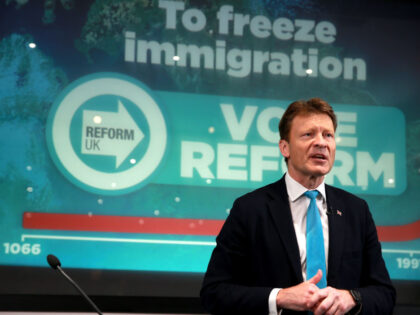
REFORM UK BLASTS Conservatives For Immigration Failure
— Reform UK launched its general election campaign by highlighting the Conservative Party’s failure to control immigration. The party, formerly known as Nigel Farage’s Brexit Party, displayed a graph showing a dramatic rise in immigration since 1997.
The Conservatives have been criticized for increasing net migration to one million every 18 months despite promising to reduce it. Reform UK’s campaign material questions who voted for mass migration and accuses both the Conservatives and Labour of failing the public on this issue.
Party leader Richard Rice emphasized that voting for either major party results in socialism, higher taxes, lower wages, and increased immigration. He argued that both parties have governed similarly despite their differing rhetoric.
Rice and deputy Ben Habib criticized decades of decline under both Labour and Conservative governments. They pointed out record-high taxes, government spending, waiting lists, debt levels, and poor public sector outcomes over the past 70 years as evidence of systemic failure.

MASS MIGRATION Cripples UK Housing: Urgent Call for Policy Overhaul
— The Bank of England’s chief economist, Huw Pill, has identified a severe shortage in housing supply and skyrocketing demand as the primary reasons for rising rent prices. In 2022, a record-breaking net migration of 745,000 significantly fueled this demand. Pill criticizes the restrictive planning policies that have hindered adequate housing development.
Contrasting with the government’s positive spin on economic figures, Pill’s insights reveal underlying challenges. Treasury chief Jeremy Hunt highlighted a 0.6 percent GDP growth as evidence of post-pandemic recovery. Yet, this growth occurs against a backdrop of high taxes and limited spending cuts under what Hunt describes as a neo-liberal globalist agenda.
The escalating housing crisis necessitates immediate action as the existing supply fails to accommodate the influx from mass migration. This dire situation demands a thorough reassessment of immigration and housing regulations to effectively tackle these pressing issues.

— ***Consumer Sentiment Plummets Amid Soaring Inflation Concerns*** Consumer sentiment takes a nosedive as worries over inflation reach new heights

UK to RAMP UP Defense Spending: A Bold Call for NATO Unity
— During a military visit in Poland, British Prime Minister Rishi Sunak announced a significant increase in the UK’s defense budget. By 2030, spending is set to rise from just over 2% of GDP to 2.5%. Sunak described this boost as essential in what he termed “the most dangerous global climate since the Cold War,” calling it a "generational investment.
The next day, UK leaders pressed other NATO members to also raise their defense budgets. This push aligns with former U.S. President Donald Trump’s long-standing demand that NATO countries up their contributions for collective security. UK Defense Minister Grant Shapps voiced strong support for this initiative at an upcoming NATO summit in Washington DC.
Some critics question whether many nations will achieve these elevated spending targets without an actual attack on the alliance. Nonetheless, NATO has recognized that Trump’s firm stance on member contributions has significantly bolstered the alliance’s strength and capabilities.
At a Warsaw press conference with NATO Secretary General Jens Stoltenberg, Sunak discussed his commitment to supporting Ukraine and enhancing military cooperation within the alliance. This strategy represents a major policy shift aimed at strengthening Western defenses against escalating global threats.

UK’S RECORD Military Aid to UKRAINE: A Bold Stand Against Russian Aggression
— Britain has unveiled its largest military aid package for Ukraine, totaling £500 million. This significant boost raises the UK’s total support to £3 billion for the current financial year. The comprehensive package includes 60 boats, 400 vehicles, over 1,600 missiles, and nearly four million rounds of ammunition.
Prime Minister Rishi Sunak stressed the critical role of supporting Ukraine in Europe’s security landscape. “Defending Ukraine against Russia’s brutal ambitions is crucial not just for their sovereignty but also for the safety of all European nations,” Sunak remarked before his discussions with European leaders and NATO’s chief. He cautioned that a victory for Putin could pose threats to NATO territories as well.
Defence Secretary Grant Shapps emphasized how this unprecedented aid would bolster Ukraine’s defense capabilities against Russian advances. “This record package will equip President Zelenskiy and his courageous nation with essential resources to repel Putin and bring back peace and stability to Europe,” stated Shapps, reaffirming Britain’s dedication to its NATO allies and European security overall.
Shapps further underscored Britain’s unwavering commitment to support its allies by enhancing Ukraine’s military strength which is vital in maintaining regional stability and deterring future aggression from Russia.

— Stock Market Plunge: Dow Drops 475 Points, S&P 500 Records Worst Day Since January Amid Inflation Concerns
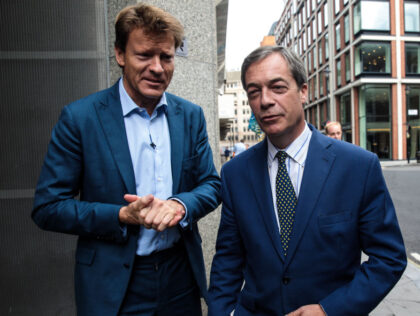
REFORM UK RISES: Public Discontent Over Immigration Policies Fuels Momentum
— Reform UK is gaining momentum, largely fueled by its firm stance against “unchecked immigration,” as stated by the party’s deputy chair. This surge in support comes in light of recent data from Ipsos Mori and British Future, a pro-immigration think tank. The figures highlight public dissatisfaction with the government’s management of borders, indicating a potential shift in the UK’s political landscape.
Despite Labour currently leading in the polls, Nigel Farage’s Reform UK party is outpacing the Conservatives when it comes to trust and policy matters. This could serve as an alarm bell for Tory politicians who have been at Britain’s political helm for two centuries. Ben Habib, Deputy Leader of Reform UK, attributes this shift to what he perceives as the Conservative Party neglecting their own voter base.
According to Ipsos Mori research, 69% of Britons express dissatisfaction with immigration policies while only 9% are content. Of those dissatisfied individuals, over half (52%) believe migration should be reduced while just 17% think it should increase. Specific grievances include inadequate measures to prevent channel crossings (54%) and high immigration numbers (51%). Less concern was shown towards creating negative environments for migrants (28%) or poor treatment of asylum seekers (25%).
Habib asserts that this widespread discontent signifies a historic realignment in politics
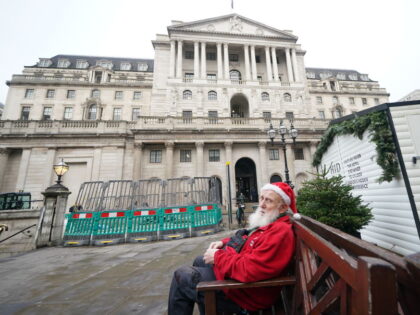
UK INFLATION TUMBLES to 39%: Central Bank May Slash Rates Sooner Than Predicted
— The Office for National Statistics (ONS) recently announced a surprising drop in UK inflation to 3.9% in November, a decrease from the previous month’s 4.6%. This dip, larger than what financial markets had forecasted, marks the lowest inflation level since September 2021.
This decline is primarily attributed to falling fuel and food prices according to the ONS. However, despite this optimistic news, the Bank of England’s primary interest rate remains at a staggering high of 5.25%, not seen for over a decade and a half.
Governor Andrew Bailey hinted that this stringent interest rate policy might continue for some time. Yet Samuel Tombs, chief U.K economist at Pantheon Macroeconomics suggests an alternative view — that this sharp fall in inflation could trigger an earlier-than-expected cut in interest rates; perhaps as early as the first half of next year.
While elevated interest rates initially helped curb inflation sparked by supply chain disruptions and Russia’s invasion of Ukraine, they have also put pressure on consumer spending and slowed economic growth. As such there are growing worries that maintaining high rates could inflict unnecessary damage on the economy.

UK Inflation DEFIES Predictions, STAYS at 67%: What’s Next for the Economy?
— The UK’s inflation rate held steady at 6.7% in September, flying in the face of economists’ predictions for a slight decrease. The Office for National Statistics highlighted that while food and drink prices dipped, they were counterbalanced by an uptick in fuel costs.
This persistent inflation rate is more than triple the Bank of England’s target of 2%. Despite this, it is not expected that the bank will hike interest rates during its November policy meeting. Instead, it seems set to keep its main borrowing rate at a peak not seen in 15 years — a hefty 5.25%.
James Smith from the Resolution Foundation think tank offered his perspective on this economic puzzle: “For now, progress on reducing inflation has hit a roadblock.” He anticipates a significant drop to below 5% next month as energy prices are projected to fall for most consumers.
In response to price surges triggered by pandemic-induced supply chain disruptions and Russia’s invasion of Ukraine — both factors contributing heavily to increased food and energy costs — the Bank of England has been steadily cranking up interest rates from near zero levels.

Video
UK HALTS Israel Arms Exports Amid GROWING Conflict
— The United Kingdom has suspended 30 out of its 350 arms export licenses to Israel. This decision, announced on September 2, 2024, comes amid rising concerns over the conflict between Israel and Hamas in Gaza. UK Foreign Secretary David Lammy stated that the suspension aims to ensure compliance with international humanitarian law.
The Labour government initiated this review in July, shortly after taking office. Lammy clarified that this is not a full embargo but a precautionary measure to reassess existing licenses. The UK remains committed to supporting Israel as an important ally while upholding humanitarian standards.
Reactions have been mixed. Human rights organizations welcomed the move as a step towards preventing potential violations of humanitarian laws by British arms. However, Israeli officials and their supporters are concerned about its impact on bilateral relations and security cooperation.
This decision adds to the growing international scrutiny over military aid and arms sales to conflict zones like Gaza. As the review continues, both nations will need to balance their strategic partnership with human rights considerations.




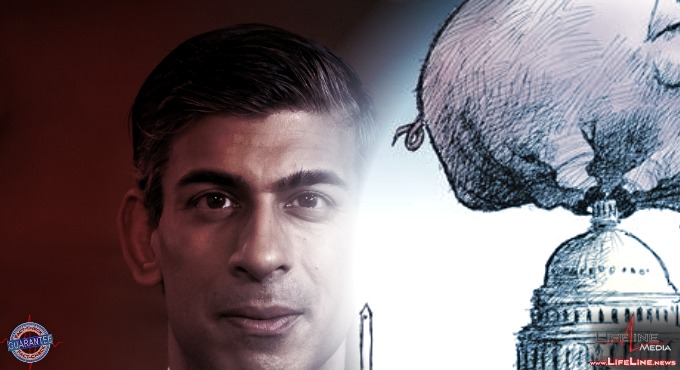



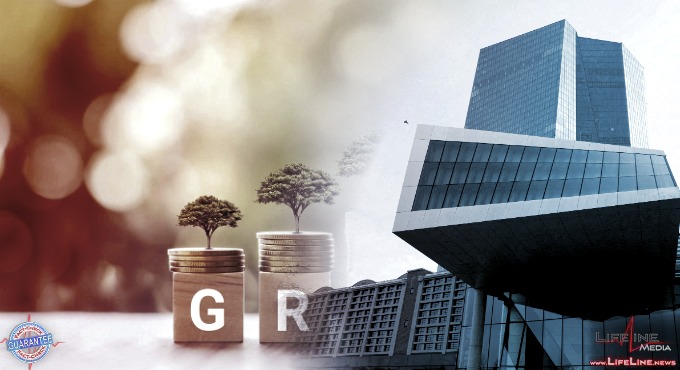
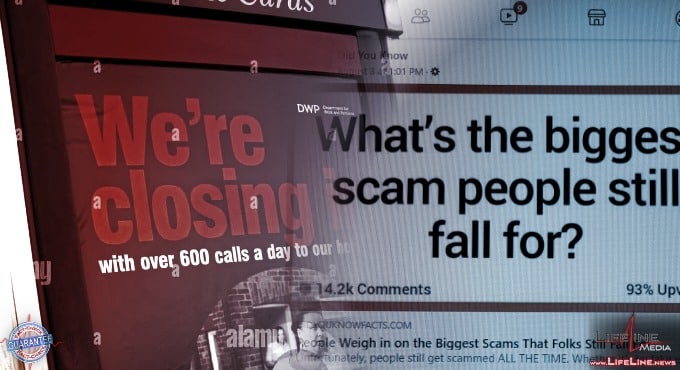






Social Chatter
What the World is SayingJoin The Right Honorable @BorisJohnson, former Prime Minister of the United Kingdom from 2019 to 2022, and Hoover Senior Fellow @LTGHRMcMaster as they discuss the war in Ukraine, British and...
. . .Join The Right Honorable @BorisJohnson, former Prime Minister of the United Kingdom from 2019 to 2022, and Hoover Senior Fellow @LTGHRMcMaster as they discuss the war in Ukraine, British and...
. . .Oil prices are down, interest rates are down (the slow moving Fed should cut rates!), food prices are down, there is NO INFLATION, and the long time abused USA is bringing in Billions of Dollars...
. . .Oil prices are down, interest rates are down (the slow moving Fed should cut rates!), food prices are down, there is NO INFLATION, and the long time abused USA is bringing in Billions of Dollars...
. . .Oil prices are down, interest rates are down (the slow moving Fed should cut rates!), food prices are down, there is NO INFLATION, and the long time abused USA is bringing in Billions of Dollars...
. . .